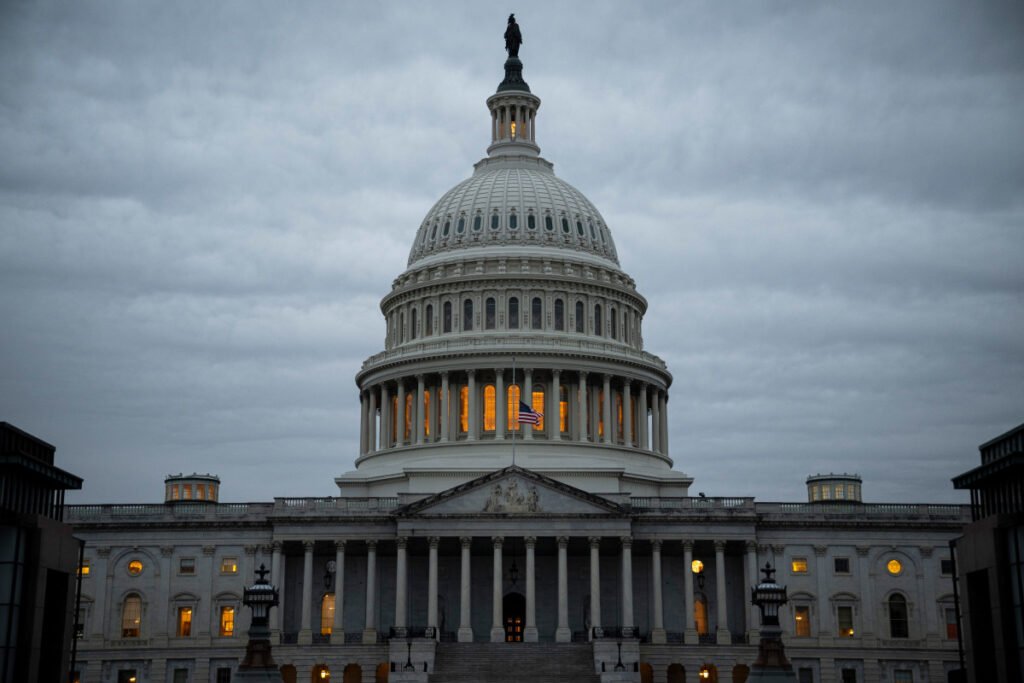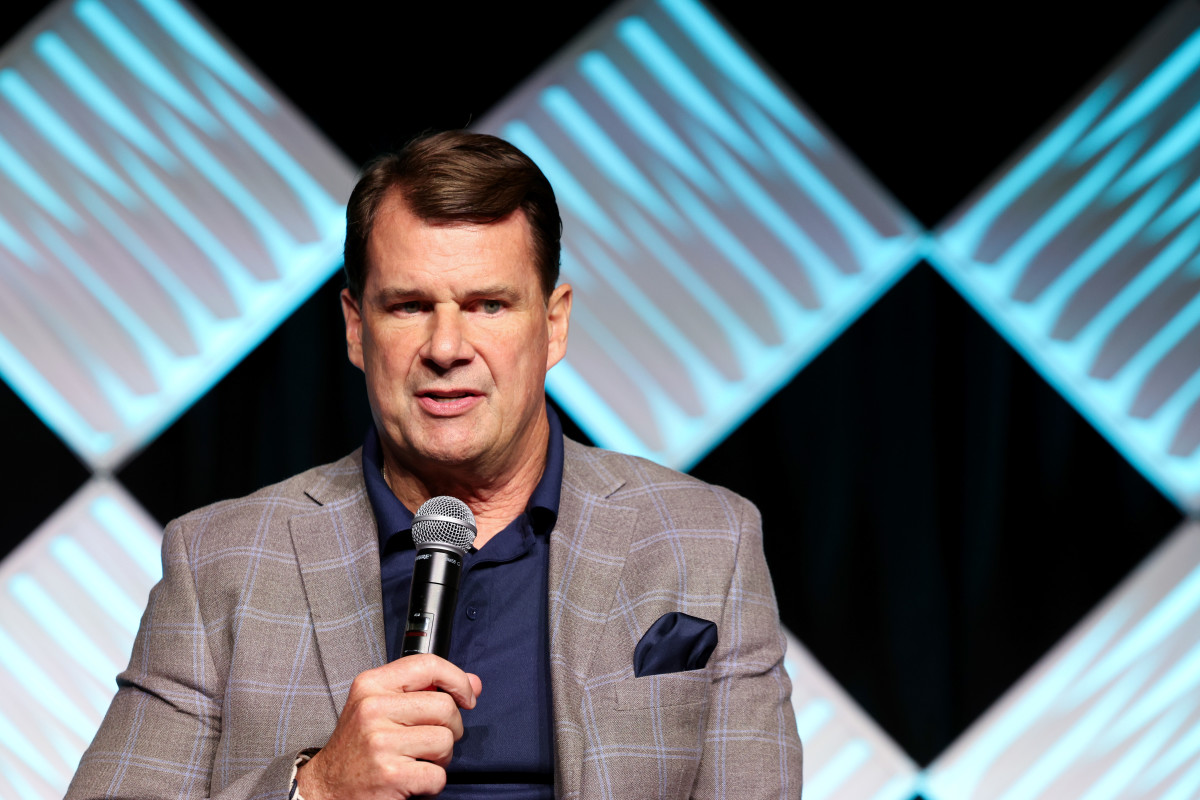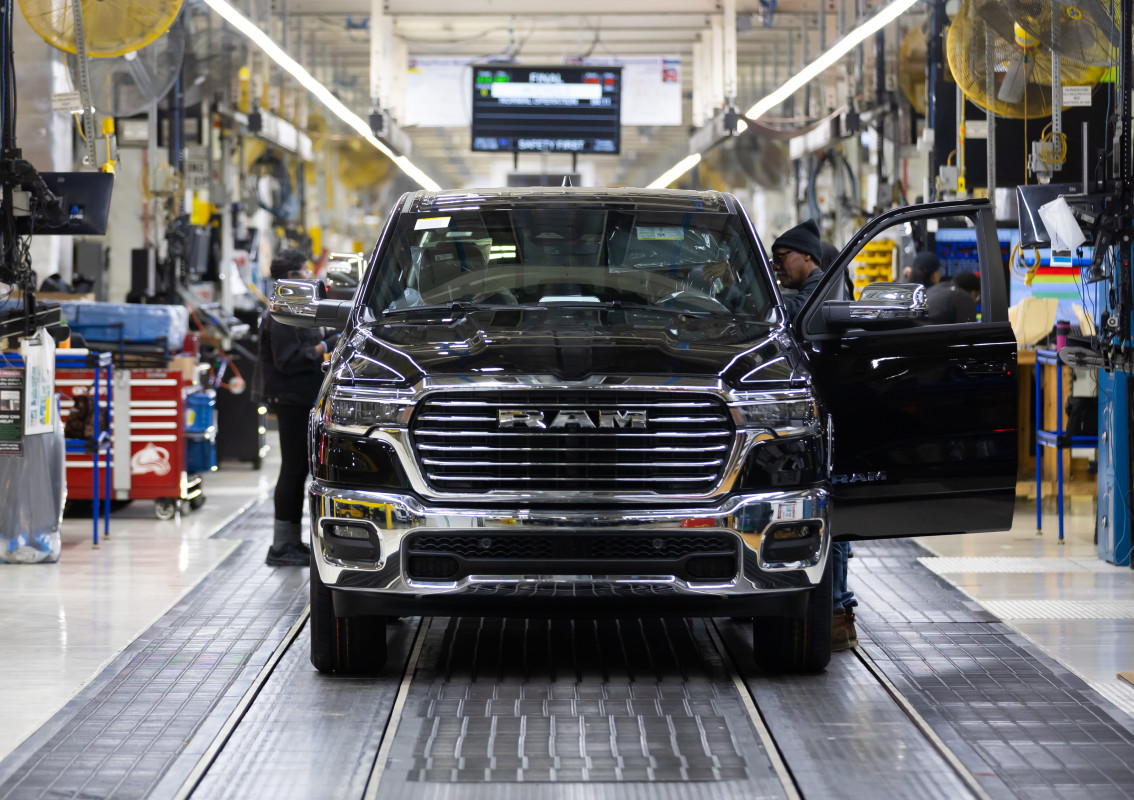
Detroit’s three leaders are called to Capitol Hill for the first time in decades
In a statement released on November 18, the U.S. Senate Committee on Commerce, Science, and Transportation has invited Ford CEO Jim Farley, General Motors CEO Mary Barra, and Stellantis CEO Antonio Filosa to publicly testify before Congress in a hearing scheduled for January 14, marking the first time since 2008 that the chief executives at the helm of Detroit’s Big Three automakers have been invited to testify before Congress.
The hearing, announced by U.S. Senator Ted Cruz (R-TX), the committee’s chairman, is intended to explore the auto industry’s outlook and role in federal transportation policy and vehicle affordability.
Getty Images
Looking at the rising costs of vehicle ownership
In its press release, the committee noted that the hearing, titled “Pedal to the Policy: The Views of the American Auto Industry on the Upcoming Surface Transportation Reauthorization” will examine “how radical global warming regulations and mandated technologies have driven up the cost of vehicles for American consumers,” as they argue that government red tape and regulation has negatively impacted auto affordability for Americans.
“In 2000, the average new car in the United States sold for $20,356. By 2010, the price had modestly risen to $24,296. Ten years later, the average new vehicle transaction price had doubled and now exceeds $50,000,” the committee stated. “New mandated technologies and climate regulations, like start-stop technology, have contributed to the soaring vehicle costs.”
According to a report by The Detroit News, the hearing is intended to grill the automotive leaders on a variety of different hot-button auto industry topics, not limited to fuel economy and emissions mandates and regulations, tariffs, federal EV policy, and new-vehicle pricing. Also invited to testify is Lars Moravy, Tesla’s Vice President of Vehicle Engineering. However, in a statement, Cruz framed this hearing as a way to demystify the complicated environment surrounding the car industry and uncover what’s making things expensive.
“Americans have been clear that they are hyper-focused on affordability – and so is this committee. The average price of a car has more than doubled in the past decade, driven up by onerous government-mandated technologies and radical environmental regulations,” Cruz said. “[…] This hearing will examine how government interference continues to make vehicles expensive and out of reach for American customers and how we can restore competition and choice.”
Stellantis
The January session offers lawmakers on both sides of the aisle the opportunity to ask the country’s most prominent automotive executives about how Capitol Hill is affecting their businesses. Notably, members of the Senate committee include freshman U.S. Senator Bernie Moreno (R-OH), a former car dealership owner and an influential voice in automotive policymaking.
The hearing comes as new car prices have reached a new high. According to data from Kelley Blue Book, the average transaction price (ATP) of a new car in the United States reached a dizzying $50,080 in September this year. In a statement at the time, Erin Keating, an Executive Analyst from Cox Automotive, said that while new complications like tariffs have introduced new cost pressure, EVs and more expensive vehicles are moving the needle.
“We’ve been expecting to break through the $50,000 barrier,” Keating said. “It was only a matter of time, especially when you consider the best-selling vehicle in America is a pickup truck from Ford that routinely costs north of $65,000. That’s today’s market, and it is ripe for disruption.”
However, it also comes as negotiations take place ahead of a mandatory review of the United States-Mexico-Canada (USMCA) free trade agreement that President Trump signed during his first term. All three countries have a deadline of July 1 to agree either to renew the terms or reach alternative terms, unless they want the agreement to expire.
Final thoughts
Although this may be the first time in decades since anyone from Detroit’s Big Three has testified in front of Congress, it doesn’t mean that they aren’t politically involved. Earlier this year, in July, the American Automotive Policy Council, a lobbying group representing General Motors, Ford, and Stellantis, argued that the deal between the Trump administration and Japan, which lowered tariffs on imported Japanese automobiles, could hinder Detroit’s Big Three.
In a statement at the time, American Automotive Policy Council president Matt Blunt said that “any deal that charges a lower tariff for Japanese imports with virtually no U.S. content than it does North American-built vehicles with high U.S. content is a bad deal for the U.S. industry and U.S. autoworkers.”


